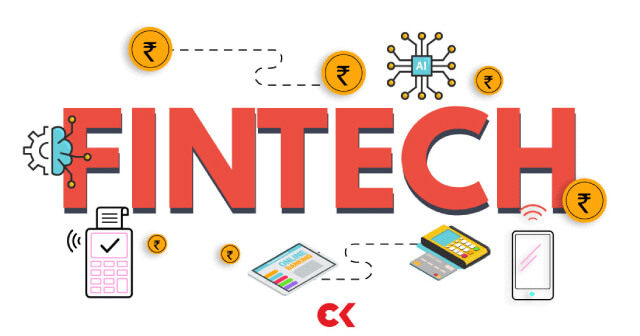Is Fintech the future of traditional banking ?

Posted by Creditkaro
Upcoming practices that will remodel the fintech ecosystem
Technological innovations which have emerged in recent times that look forward to challenge the traditional financial methods that have strived to deliver various financial services. Ever since globalization has taken place, we have seen a constant change in how business ideas have occurred and expanded. This has been amplified by innovative technologies and rapidly evolving customer expectations. To stay ahead in disruptive situations even the highly regulated banking and financial sectors in recent times have witnessed constant evolution of its business models.
Imagine that you are competing against a truly global, multi-service, low-cost, digital bank: customers accessing their accounts through their mobile phones, paying with a tap on their wearables, sweeping savings to an ETF portfolio (designed by an AI (artificial intelligence) engine based on their savings goals and risk appetite profile) offering no-fee, cross-border payments. Consider a scenario where a competitor bank like this, with a low and nimble footprint, prototyping new services quickly, managing regulatory compliance transparently, using an AI system to limit fraud losses, and curbing currency risk using cryptocurrencies. This competitor does not exist today. But in the coming few years, it is a very real possibility. The pressure is on for traditional banking and credit union tech leaders to deliver or fall behind competitors and new startups trying to capture banking customers.
A PWC (PriceWaterCorp.) report stated that global investments in FinTech have more than tripled since 2014 and has crossed $12 billion whereas banks spent an estimated $215 billion on IT worldwide during the same year, including hardware, software, and internal and external services. In the financial services value chain FinTech solutions play an important role. It is truly a wonder what we have already experienced for 2019:
Phone Banking has started gaining lot of importance because of its convenience factor. With the gradual introduction and implementation of smart speakers NLP (Natural language processing tech) is also turning out to be a traditional medium or channel of transaction. As per mimeo.com pioneers of these technologies such as Amazon Alexa and Google Home are using these AI-powered, voice-activated “digital assistants” to schedule meetings, check the weather, and increasingly, complete personal finance transactions. There are over one billion voice-activated uses of search engines per month alone in 2018.
By analyzing the behavioral aspects of the customers, financial service providers are customizing each platform needs to adapt smartly and accurately to the personalization of the user interface. This will help traditional banks to interpret and gain a competitive edge because of the customization and end user satisfaction that will be offered.
There is no doubt that A.I has empowered businesses to achieve longer milestones. The financial sector has attained higher levels of operational efficiency and precision enabling them to expand in fresh avenues. This has further opened new pathways to concentrate more on revenue generating operations which are monotonous and require significant manpower intervention. Sources from mimeo.com say that Bank of America has launched a bot named “Erica,” and Wells Fargo is pilot-testing chatbots for various use cases, including helping bereaved relatives complete paperwork.
Digitization, data security and privacy have become the primary concerns of the fintech industry. As per a recent study by Fiserv, 57% of the customers who haven’t used mobile banking so far have perceived “security concerns” as their first and foremost reason. This fact indicates that data protection and privacy will always continue to be at the center of attention in technological evolution in the fintech industry. Fintech companies will be very cautious while managing Personally Identifiable Information (PII) of a customer. These companies will leverage technology to ensure security and confidentiality of such data collected, if any. They will also use technology to comply with regulatory mandates such as GDRP.
The smartphone revolution and unprecedented internet penetration has completely transformed banking, payments and fund transfer activities. According to Gartner, the number of devices connected to the Internet of Things (IoT) is expected to reach 20.8 billion in 2020. Fintech companies will create a robust ecosystem that will integrate IoT with banking and payment needs. Consumers are increasingly expecting their IoT devices to facilitate payments. Fintech companies are enabling payments through wearables and other smart scanning devices.
Usage of Cloud based servers in the banking sector is now the ideal practice in maintaining shared databases. Various cloud formats are available catering to the needs of different banks depending on their data sensitivity and privacy protocols. In the recent years few specific services are getting onboarded to the cloud servers, few of the services that constitute to be a part are payments, remittance, credit score checks, Account billing etc.
According to a recent study, 56% of retail or commercial banking execs plan to increase spending innovation this year, while 55 percent will invest in customer experience initiatives. In 2019, there’s immense pressure for tech leaders to deliver on security risk reduction, customer happiness, and exciting new FinTech. The idea is to define FinTech as a cross-disciplinary subject that combines Finance, Technology Management and Innovation Management. More specifically, we recommend that FinTech refers to any innovative ideas that improve financial service processes by proposing technology solutions according to different business situations, while the ideas could also lead to new business models or even new businesses.
Category
Recent Post
Archive